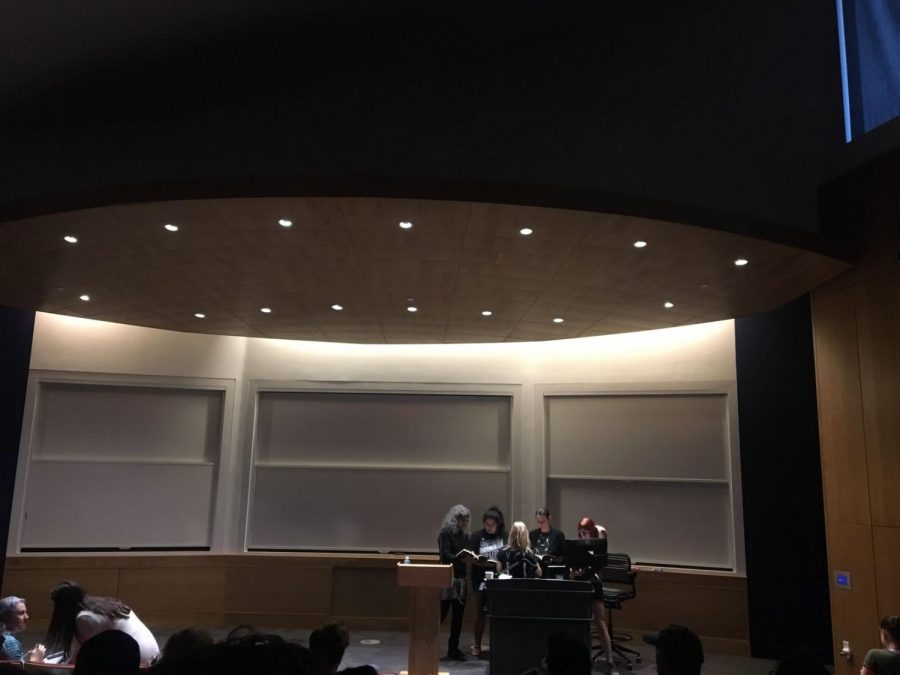Visiting Writer Series poet talks hybrid genres, politics
Only through Kazim Ali’s poems can peaches find a peculiar likeness to President Donald Trump.
“Be peach. Make peach. Let it be a peachful season. Impeach. And hi Mr. President, you may do some good,” Ali said.
Ali let his work in hybrid genres loose in Carter Auditorium March 6, as part of the Marcia Mckinsey Visiting Writers Series which features two professionals a semester. He is the author of several poetry books including “Sky Ward” and “The Far Mosque.”
Rather than read from published works like many visiting writers, Ali closed with a draft from his notebook.
Referencing Trump’s signature campaign promise to build a wall along the U.S.-Mexico border as well as a travel ban of people from Muslim-majority countries, Ali said, “and now they say the president is coming. To what? Build a wall, banish the butterflies, criminalize my actual bloodstream?”
Further criticizing the Trump administration, particularly his cabinet which has come under scrutiny for their ethical standards, Ali said, “The one to be assistant director of the office of homonational normalizing f—ery.”
By reading unpublished works, Ali feels he is able to remain “connected in the process of writing poetry.”
Mary Helen Specht, a professor of writing and rhetoric at St. Edward’s, hosts the visiting writer series with the School of Humanities. Her goal is to expose students to writers who are experienced in different genres and styles.
“I want to get different kinds of diversity to show students that writers can look like them, can look like all kinds of people,” Specht said.
Ali’s audience at a reading in Boulder was the first to hear his peaches poem, but the audience at St. Edward’s was treated to a first as well.
During the lecture, Ali pioneered what he called a collaborative reading. He asked for three audience members to help him read from his book, “The Secret Room.” The audience volunteers became a string quartet of sorts, acting as a violin, viola and cello, but spoken rather than instrumental.
He later brainstormed ways the collaborative reading could be improved, such as having the four people stand in different parts of the room for a more dramatic effect.
Additionally, he mentioned that he’s been releasing himself from creative constraints lately, but that it took some time to get used to the freedom of poetic prose or being open about sensitive topics.
“Including oral sex and drug use in public,” Ali said.
The next writer slated to visit is Karan Mahajan, another Indian author, March 28 in Carter Auditorium.







